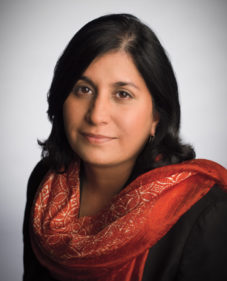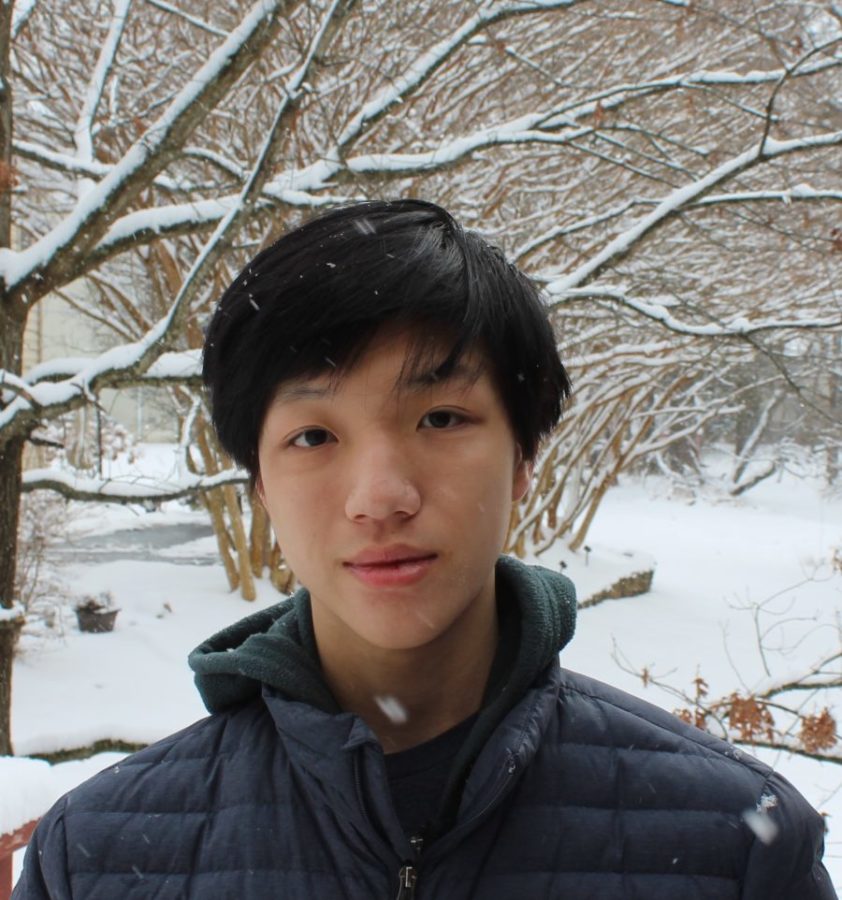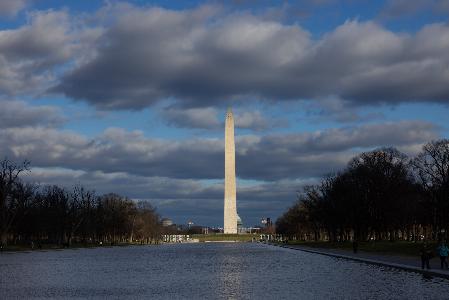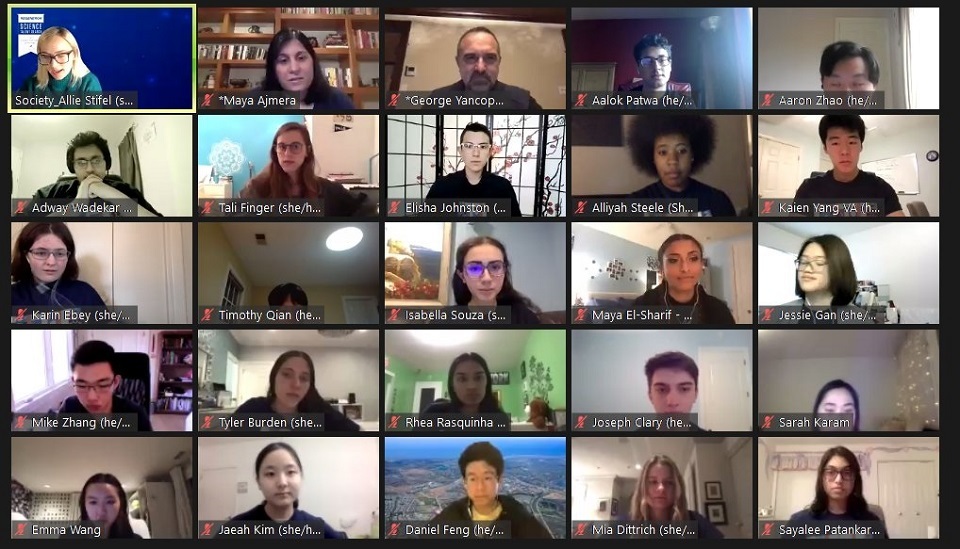Timothy Qian has been practicing how to simplify his explanation of his quantum metrology research.
“Since my project is in quantum and it’s very math heavy, I’m trying to find a way I can explain this that might be more understandable to a person who isn’t an expert in the field,” he told Technical.ly.
It’s a skill that will be useful when he presents that research in March: Qian is one of three local students who have been named finalists in the Regeneron Science Talent Search 2021, a prestigious science and math competition for high school seniors.
The annual program is run by Dupont Circle’s Society for Science and New York-based biotech company Regeneron Pharmaceuticals. Of the 1,760 applicants, 40 student finalists spanning 15 states and 37 schools were selected to participate. They will now go on to compete at the final stage of the competition in March to vie for a share of $1.8 million in cash awards.
“We are looking for the future scientific leaders of this country,” Maya Ajmera, president and CEO of the Society, told Technical.ly. “It has been a tough year and I am amazed at the resilience and ingenuity and creativity of young people. I think adversity bring innovation.”

Maya Ajmera. (Courtesy photo)
The Society began hosting this annual competition in 1942 — for its first 50 years, it was called the Westinghouse Science Talent Search — and previously partnered with Intel and the Summer Science Program to host the program. This year’s search for the nation’s brightest science and math students began with solicitation of research proposals. The 1,760 projects submitted were narrowed down to 300 by an expert panel of judges, each of whom received $2,000 for themselves and their schools, before the finalists were announced.
As part of the application process, students submitted materials such as research findings, transcripts, essays and recommendation letters. Projects spanning a range of STEM topics were selected based on their scientific rigor and scalability.
Though the program is usually hosted in person in D.C., the Society took the competition virtual last year when the coronavirus pandemic hit. Ajmera said the org was nervous students wouldn’t participate because of the health crisis, but the application volume was just as high as it’s been in previous years.
“These kids start working during their freshman or sophomore year on their science research projects,” Ajmera said.
Each of the 40 finalists will receive $25,000 for making it to the final stage of the competition. Here are the three finalists from the DMV region, with descriptions of their projects provided by the Society:
- Eleanor Sigrest, Forest Park High School in Woodbridge, Virginia
- Sigrest developed and tested a new method to manage slosh, the unwanted movement of fluids in microgravity, using surface energy to retain fluid in desired locations. In a spacecraft, slosh can cause the craft to move erratically. Today’s devices to manage slosh add undesirable weight and cost.
- James Licato, Washington-Liberty High School in Arlington, Virginia
- Licato developed a composite filter material that could be used by wastewater treatment plants to remove persistent organic micropollutants from sewage, thus protecting the environment.
- Timothy Qian, Montgomery Blair High School in Rockville, Maryland
- Qian developed an innovative protocol that could one day be used to improve hardware control in sensor networks, quantum computers and nuclear magnetic resonance imaging.
The virtual competition will take place from March 10 to 17 and the top 10 research projects will receive awards ranging from $40,000 to $250,000. Check out the rest of the top 40 on the competition’s website.
Qian said the application process was extensive, as it required multiple essays. But now that he’s made it to the finals, he said it feels rewarding to have earned such recognition for his research.

Timothy Qian. (Courtesy photo)
“When I first contacted my mentor, I didn’t really know much about the field of quantum metrology, so they sort of helped direct me toward a starting problem,” Qian said. “When I looked at the starting problem, we actually discovered that it was more interesting than we originally anticipated, and then we kept building on that starting problem until we had a full story for the research project.”
Before embarking on his quantum research project, he said he mainly worked on computer science-based projects. Qian eventually wants to attend college to major in computer science or physics with a long-term goal of becoming a professor. He plans to put any cash awards he secures from the competition toward college.
Join the conversation!
Find news, events, jobs and people who share your interests on Technical.ly's open community Slack

DC daily roundup: Tyto Athene's cross-DMV deal; Spirit owner sells to Accenture; meet 2GI's new cohort

DC daily roundup: $10M to streamline govt. contracting; life sciences might dethrone software; Acadia's new $50M

DC daily roundup: the DMV's VC cooldown, SmartSigns for safer driving; Rep. Schiff's AI copyright bill


